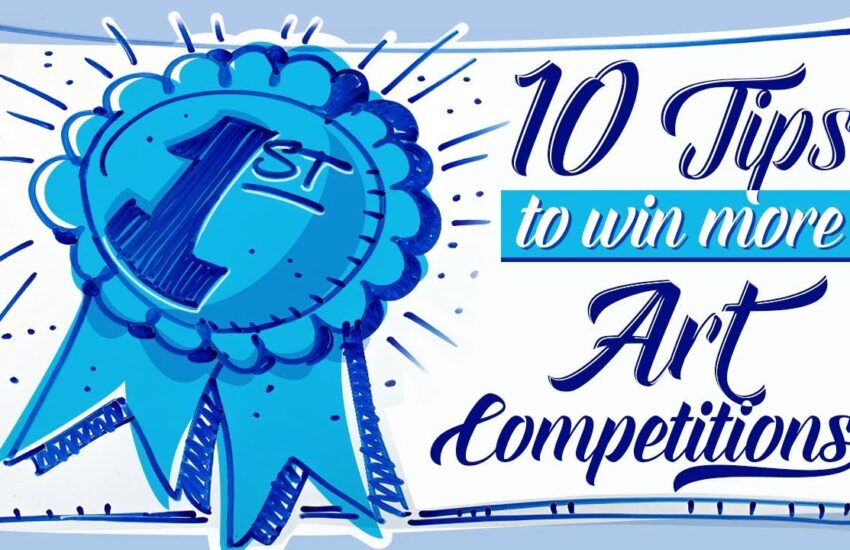How to Win Competitions

Competitions come in various forms, from lottery draws and online contests to local raffles and talent competitions. Regardless of the type, everyone wants to come out on top. Winning can bring recognition, prizes, and a sense of accomplishment. But how can you significantly improve your chances of winning? In this article, we will explore effective strategies, tips, and personal insights that will enhance your competition entry methods and ultimately lead to success.
At the outset, whether you’re entering a simple raffle or a prestigious talent show, you need to understand the rules and mechanics behind it. Many people enter competitions without fully grasping how they work, resulting in missed opportunities. In this article, you will learn:
- Essential tips for maximizing your chances.
- The importance of research and preparation.
- How to effectively present your entries.
- And much more!
With these elements in mind, let’s dive deeper into the world of competitions and how you can become a formidable contender.
Understanding Competition Types
Before you start participating in competitions, it’s crucial to identify the specific types and their characteristics. Each type of competition—be it skill-based, luck-based, or mixed—requires different strategies for success.
Skill-Based Competitions
Skill-based competitions, such as sporting events, art contests, or writing competitions, evaluate the participant’s abilities directly. To excel in these, continuous practice and development of your skills are paramount.
Practice Diligently
As the saying goes, practice makes perfect. Regularly practicing your skills enables you to refine them progressively. Start by setting aside dedicated time for practice each week.
Seek Feedback
Involving peers or mentors and seeking constructive criticism can provide you with insights that you may overlook. Take feedback seriously and implement changes as necessary.
Study Competition Winners
Research past competition winners to understand what judges value. Analyze their techniques and think about how you can implement similar strategies to stand out.
Luck-Based Competitions
These are competitions whose outcomes depend significantly on chance, such as lotteries and random raffles. Your strategy here focuses on improving your odds.
Enter Frequently
Statistically, the more you enter, the greater your chances of winning. If there’s no limit to the number of entries or tickets you can purchase, consider maximizing your participation.
From the Crowd
Target competitions with fewer participants, where your chances increase exponentially. Seek local contests that may not attract widespread attention.
Stay Alert for Opportunities
Be on the lookout for competition announcements on social media, newsletters, and community boards, ensuring that you don’t miss any potential entries.
The Importance of Research
Market research is essential for winning competitions and directly correlates with your how well-prepared you are. Familiarizing yourself with the competition’s layout sets a solid groundwork for your success.
Analyze Past Competitions
Look into previous iterations and determine which formats they followed, including scoring systems. The more informed you are, the better your model of submission will be.
Examine Competitor Entries
If possible, review successful entries from earlier years. Analyze the styles, themes, and techniques that resonated well with the judges.
Review the Rules Thoroughly
Rules might include entry limits, required formats, or a specific theme. Ignoring even the smallest requirement can disqualify your entry, so clarity is essential.
Utilizing Online Tools
There are numerous online tools that can help ease your competition preparation. Use these to your advantage.
Automated Reminders
Set reminders for entry deadlines to ensure you never miss a chance again. Calendar apps or task managers can be immensely helpful.
Social Media Monitoring
Follow the competition’s official accounts on social media. You can stay updated with any changes, bonuses for entering, or hints that they might provide for contestants.
Effective Presentation of Entries
Once your entry is prepared, how you present it becomes just as crucial as the quality of the content itself. Presentation can sometimes make or break your chances.
Follow Formatting Guidelines
Adhering strictly to submission guidelines ensures you maintain a professional standard and showcases your attention to detail.
Proofread Thoroughly
Spelling or grammatical errors can detract from your entry’s overall value. Always proofread and, if possible, have an additional set of eyes review your work.
Be Creative
Think outside the box. Since competitions are often judged on creativity, try new formats, mediums, or stylizations that break traditional norms.
Engagement Through Presentation
Utilize tools that enhance engagement. For example, in video submissions, high-quality visuals and clear audio can significantly affect your results.
Networking and Collaborations
Building a network within the competition community can yield extraordinary benefits, from gaining insights to finding opportunities for collaboration.
Join Online Forums
Participate in discussions or competitions-related groups on platforms like Reddit or Facebook, where communities share experiences, tips, and tricks that could be beneficial.
Partner with Others
In talent competitions or creative entries, consider teaming up with others. Collaboration can bring fresh ideas and combined skills that may result in a winning submission.
Mentorship Opportunities
Seek out mentors who have experience in competing successfully. Their knowledge can dramatically influence your preparation and approach.
Managing Expectations
With all the preparation and effort you invest, it’s essential to maintain realistic expectations about the outcomes of competitions.
Embrace the Learning Process
No matter the results, each competition offers valuable lessons. Analyze your performance, remember what worked and what didn’t, and implement these insights into future competitions.
Coping with Disappointment
Understand that losing is part of the journey. Rather than feeling disheartened, reflect on your experience, recalibrate, and strive for improvement.
Conclusion
Winning competitions requires a blend of skill, strategy, and a bit of luck. By understanding the types of competitions, gaining substantial knowledge through research, presenting high-quality entries, networking with fellow participants, and managing your expectations, you greatly enhance your odds of taking home the prize.
Ultimately, it’s about enjoying the thrill of the challenge while developing confidence and skills along the way. So gear up, put your strategies into action, and step into the spotlight to seize your next chance to win.
For more insights on related topics, check out this article and this one for comprehensive guides.
